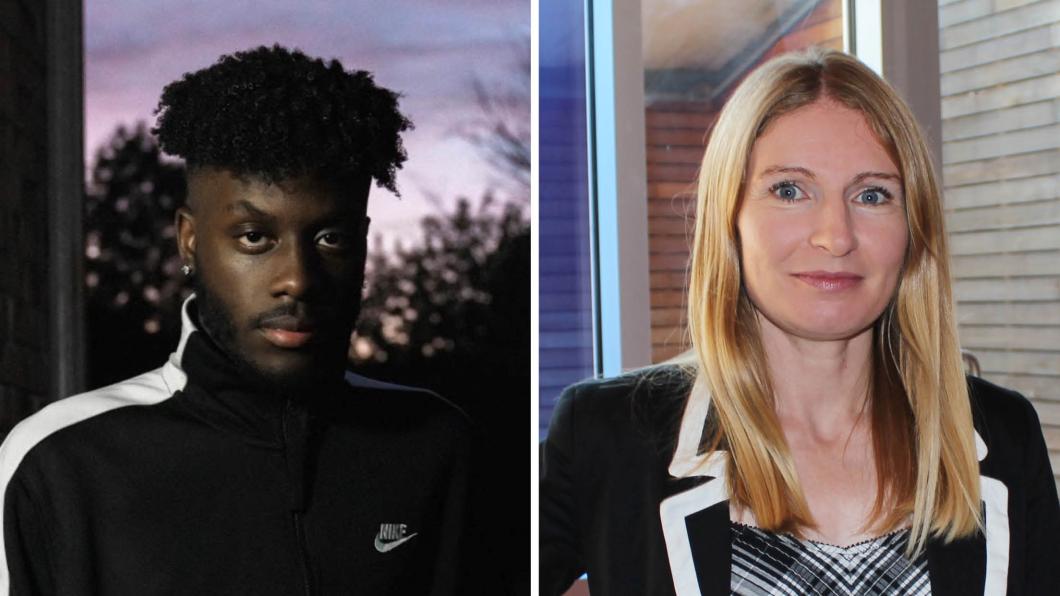
Study led by Dr. Sally Lindsay delves into the intersectional lived experiences of youth with disabilities, finding ways to enhance their well-being through inclusion
When Nathan was 15 years old – just a teenager, he was stopped by two police officers who questioned him about why he was in possession of a walker. Little did they know that he has cerebral palsy and sometimes needs his mobility device to get around.
Instead of allowing that negative encounter to hurt him as a person, he decided to ‘flip the script’ and turn that painful experience into something more powerful – to expose what ableism, racism and discrimination feels like and to rise above it.
“Due to persistent and widespread misconceptions, many believe in the ableist notion that people with disabilities are less capable of achieving. I have often found that people expect me to be timid, or less ambitious towards my future aspirations,” says Gaba. “Yet, in reality, everything I wasn't born with and had to strive toward has shaped me into the man I am proud to be today. These experiences have equipped me with the confidence and strength to remain both hopeful and resilient.”
Fast forward to 2022. Gaba, who has been a part of the Holland Bloorview community since he was an infant, is now a disability advocate and part of the hospital Foundation’s team, championing for change to eliminate stigma surround race and disability.
In keeping with publicly sharing his lived experiences to empower change, he is one of several collaborators on a new research study that examines the impact of discrimination, ableism and racism on youth living with disabilities. The study is funded by the Social Sciences and Humanities Research Council of Canada through their Race, Gender & Diversity Initiative Grant, and will be generously matched, in part, by the Kimel Family Opportunities Fund.
Dr. Sally Lindsay, a senior scientist with the Bloorview Research Institute’s TRAIL Lab (Transitions And Inclusive environments Lab), is leading this three-year study that aims to unpack the complexities of youth living with disabilities and co-create solutions to remove attitudinal barrier and disparities, especially for racialized and marginalized young adults.
“For far too long, policies aiming to address ableism and discrimination continue to view people with disabilities as one homogenous group with little account for how disability intersects with race, ethnicity and gender,” says, Lindsay, who is also an associate professor in the Department of Occupational science and Occupational therapy and the Rehabilitation Sciences Institute at the University of Toronto. “There is an urgent need to better understand the diverse lived experiences of people with disabilities. Focusing on youth is especially important because ableism is often higher among younger groups compared to those who are older.”
The project will take an intersectional approach with collaborations from family leaders, youth living with disabilities, health-care providers, researchers and community partners to co-create new knowledge, and build capacity and knowledge mobilization on issues related to discrimination, ableism and systemic racism of under-represented groups -- especially youth with disabilities.
Learn more about the research team and study, Discrimination, ableism and racism hurt but inclusion can heal: Listening to the intersectional lived experiences of youth with disabilities and co-creating solutions.
Read the press release from the Government of Canada’s Social Sciences Humanities Research Council of Canada
Full Research Abstract:
Lindsay S (March 2022). Discrimination, ableism and racism hurt but inclusion can heal: Listening to the intersectional lived experiences of youth with disabilities and co-creating solutions. Race, Gender & Diversity Initiative Grant, SSHRC. $450,000. 2022-2025.
This 3-year community-based research partnership focuses on the complexities of the lived experiences of youth with disabilities (defined as impairments in body function or structure, activity limitations and participation restrictions, including mental health issues) [1] and how disability intersects with race, ethnicity and gender. Our overall goal is to work towards removing barriers and disparities for youth with disabilities, especially marginalized and racialized youth (i.e., social process constructing races as different and unequal in ways that matter to economic, political and social life) [2]. Policies (e.g., Canadian Charter of Rights; Ontario Human Rights Commission) aiming to address ableism, racism and discrimination continue to view and treat people with disabilities as one homogenous group with little account for the range of lived experiences, which could lead to a worsening of health and social outcomes amongst marginalized populations. This project will draw on an intersectional approach with community-based collaborations to foster the co-creation of new knowledge, capacity building and knowledge mobilization on critical issues related to discrimination, ableism and systemic racism of under-represented or disadvantaged groups (i.e., youth with disabilities). We aim to inform more relevant programs, policies and practices to enhance the inclusion and well-being of young people with disabilities. Specifically, we will seek to conceptualize and frame the social and cultural inequities that influence the diverse lived experiences of youth with disabilities and identify drivers of such inequities along with potential solutions that address inequities and optimize well-being [3].
Related stories: Empowered by lived experience: flipping the script on race and disability